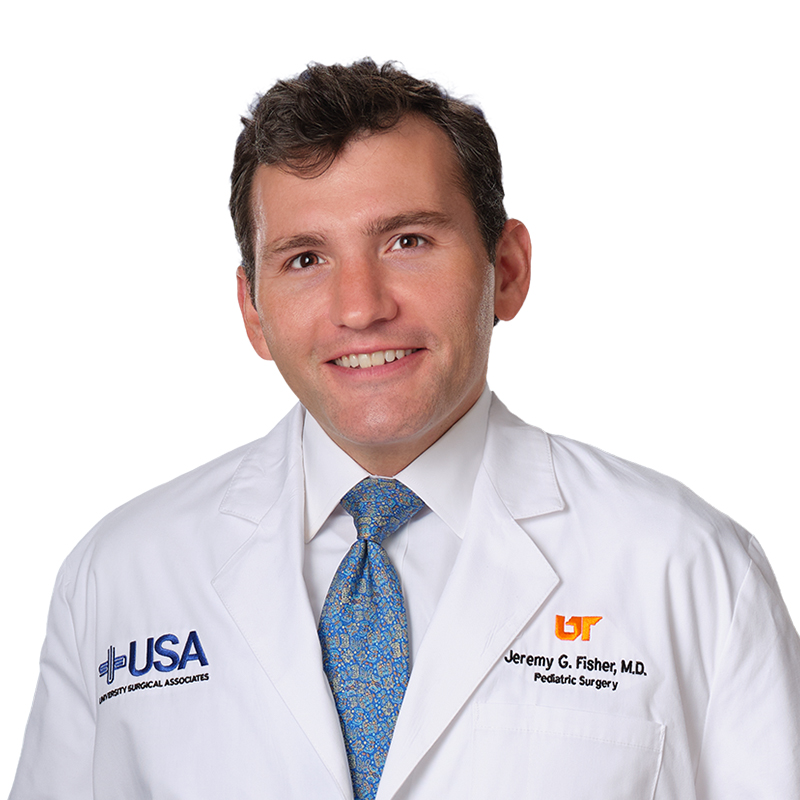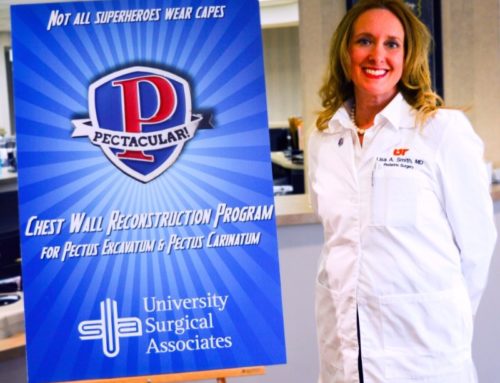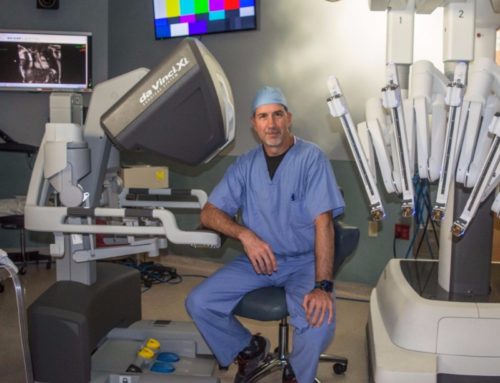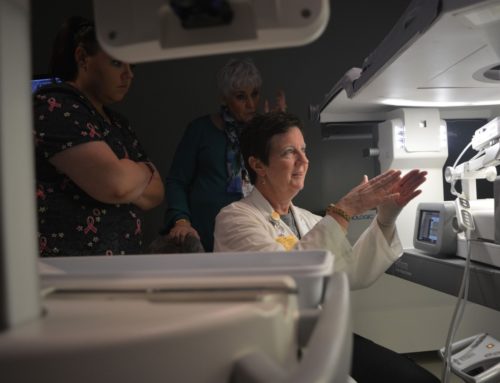Learn more about this complex colorectal disorder that affects approximately 1 in 5,000 live births from USA pediatric surgeon, Jeremy Fisher, MD.
Hirschsprung Disease is a complex colorectal disorder affecting approximately 1 in 5,000 live births. It’s a defect that is typically identified in the early days of a child’s life, if they’re unable to pass meconium in the first 24 to 48 hours after birth. Meconium is a newborn’s first poop that is made of protein, fats, and intestinal secretions like bile. Children who do not pass stool as expected may be suspected of having Hirschsprung Disease.
“Simply put, Hirschsprung Disease can cause difficulty passing stool. Children affected by this condition often develop constipation or partial or total obstruction of the bowels, leading to discomfort and pain,” says Jeremy Fisher, MD, pediatric surgeon with University Surgical Associates. “The condition involves missing nerve cells in the muscle in part of all of the large intestine. These cells are called ganglion cells, and their job is to allow the rectum to relax. Without them, the muscles in the bowel are constantly contracting and lose their ability to move stool through the intestine and out of the body.”
WHO IS AFFECTED?
There are no racial or ethnic backgrounds that make developing Hirschsprung Disease more likely. Anyone can be born with this birth defect, although it is four times more common in males than females. While typically diagnosed at birth, the condition is sometimes found later – where a small area of the rectum is involved and becomes more noticeable as the child gets older and experiences issues with constipation. Because constipation is a such a common childhood ailment, it can take a while to identify the root cause of symptoms.
In addition to the main symptoms of constipation and bowel obstruction, children who are diagnosed later are also at risk for Hirschsprung enterocolitis, an inflammatory condition and infection of the colon that causes fever, abdominal distention, diarrhea, and sepsis.

“The only treatment for Hirschsprung Disease is surgery, where the section of the rectum or colon that isn’t functioning properly is removed. When found at the newborn stage, many children will have this procedure before they leave the hospital,” says Dr. Fisher. “The number one goal is to remove the affected area and put things back together so the child can poop normally. Although a temporary stoma is sometimes necessary, the vast majority are ultimately able to go to the bathroom through the anus.”
Typical recovery for this surgery is a few days in the hospital, usually less than a week depending on other factors. Before discharge home, a child’s bowels must be functioning as expected. Parents are also educated about how to look out for enterocolitis or infection that can develop in the digestive tract after surgery. While in the past surgeons have believed that surgical repair corrected Hirschsprung Disease completely, it’s now understood that many children with the condition may have ongoing issues with bowel function including incontinence and constipation.
Dr. Fisher notes that Hirschsprung Disease is complex and multifaceted and can negatively impact a person’s quality of life. Because these issues often continue into adolescence and adulthood, routine monitoring or being followed by a specialist is critical to ensure they don’t develop or continue to struggle with the physical and psychosocial issues related to the disease.

“Pediatric surgeons are trained to treat this disease and it is an essential pediatric surgical condition. However I do believe that more experience and a greater volume of cases means a higher level of expertise – leading to better outcomes,” says Dr. Fisher. “The experience I gained during my fellowship and training under one of the leading experts in the disease means I’m well equipped not only to perform the initial surgery if needed, but to provide a nuanced assessment and advanced care for individuals who are still struggling with long term symptoms.”
IF YOU OR YOUR CHILD IS STRUGGLING WITH LINGERING SYMPTOMS OF HIRSCHSPRUNG DISEASE, COMPASSIONATE AND EFFECTIVE CARE IS AVAILABLE. TO SCHEDULE A CONSULTATION WITH DR. FISHER, CALL UNIVERSITY SURGICAL ASSOCIATES AT 423.267.0466.







Leave A Comment